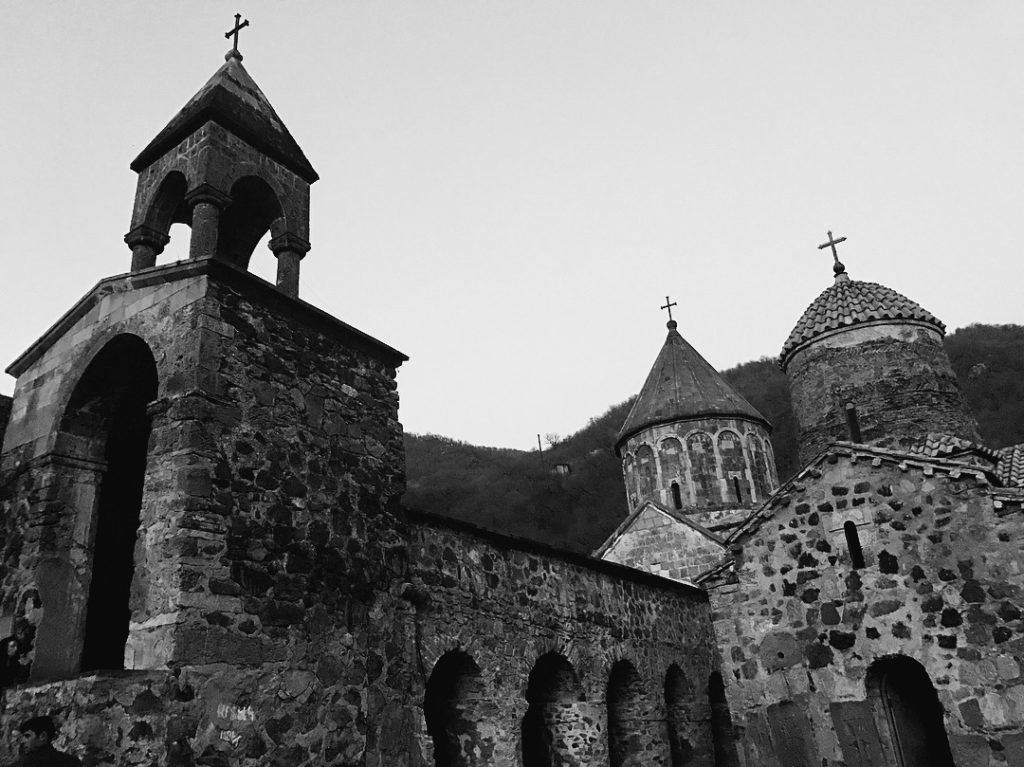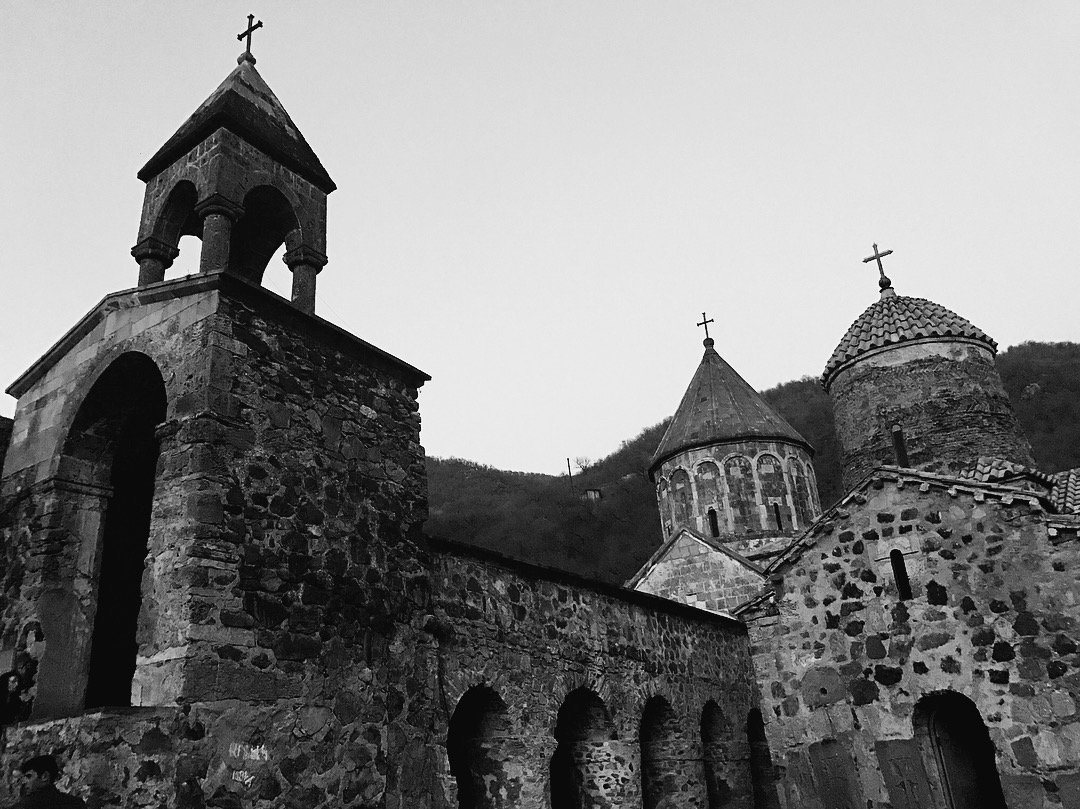My recent visit to Armenia showed me a side of the country where I was born and where I spent the first 17 years of my life, a face I had never noticed before.What if that face was there forever and I haven’t seen it all my life? and Or did you notice it because you saw something more positive elsewhere and had a benchmark to compare it to? The face I’m talking about is the face of aggression. Relentless and dangerous aggression in the most inconsequential and trivial situations, where a simple smile could solve the problem.
An accidental bump in the shoulders creates a cycle of “look ahead” and “watch how you talk to me,” but in many other countries and cultures, such scenarios result in mutual accusations. Instead, apologize to each other, take responsibility for the unintentional negligence on both sides, and resolve the situation peacefully. Even worse than when we Armenians walk, what happens when we drive a car. Repeated loud car horns blare endlessly, with a voice saying, “Why are you honking at me?” And there are a series of other interactions that sometimes end in name-calling and violent remarks, disrupting all traffic to regain ego’s glory.
I witnessed these examples in Armenia, but the virtual world of social media platforms is even more shocking than this. Offensive comments, hate speech, and profanity can be used when someone shares political views different from ours, belongs to a political party we oppose, or simply because of our actions, It spreads when people don’t share the same way of thinking and speaking. This widespread phenomenon of aggression, seen both in the offline and online worlds of Armenia, does not allow women to be called names in their presence and treats foreign tourists visiting Armenia like estranged sisters and brothers. It is inappropriate for a culture that treats people with warm hearts. So why do we treat our fellow countrymen in a way that is incomparable to the way we treat and admire foreigners? Why do we take each other for granted? ?
We have discussed some potential factors and causes behind this phenomenon. What is clear to me is the trauma we have experienced as a nation over the past few years. The wounds of the 1915 genocide have not yet healed, and we have witnessed numerous other wars and massacres that have left our people in a state of physical and mental devastation. Almost everyone has lost something: parents who have lost sons, children who have lost fathers, men who have lost body parts, thousands of people who have lost their homes, brothers, sisters, friends, loved ones. . We all lost our homelands. And when all these losses add up, it’s hard not to lose some level of sanity.
But that being said, shared struggles and suffering lead us not to aggression but to compassion and mutual support, greater care and respect, and when faced with a common enemy we are assiduously preparing for. I believe it will lead to unwavering solidarity and unity. for another attack. Instead of uniting and preparing to fight the enemy, we are looking for the enemy in front of each other and trying to take revenge on each other.
Psychological trauma may be one of the reasons behind this aggression, and anger is often a fear response, but deep down in our minds, something as fundamental to us as Something is happening on a deeper level, independent of external circumstances. unchanging spirituality. There is a trend away from spirituality both in Armenia and around the world. As a result, values such as humility, forgiveness, kindness, compassion, patience, and peace have been overshadowed by arrogance, resentment, cruelty, indifference, impatience, and confusion.
Although Armenians often boast that our country is the first country to adopt Christianity as a state religion, they rarely act in accordance with Christian values such as humility, forgiveness, patience, compassion, and love. Many people go to church only on special holidays and strive to prepare food suitable for Christmas and Easter, but do not understand the true spiritual meaning of these events. Many of us are grateful for water when we’re thirsty, grateful for our health when we’re sick, and, unfortunately, our spiritual place is no longer grateful for water when we’re sick. In the same way, we remember God and pray only when we need to. It’s no longer within our reach.

There are many examples of how we began to appreciate geographic, cultural, and spiritual gifts only after they had been lost. Examples are both historical examples, such as Mount Ararat and Ani (the city of 1,001 churches), and modern examples, such as Dadivunk. or the Cathedral of the Holy Savior Gazančetsots. I remember that in the days after the 2020 Artsakh “ceasefire” agreement, so many buses were traveling from all over Armenia to Dadivank. For many, it was the first time they saw Dadivank, the first time they heard about Dadivank, or the first time they understood the monastery’s historical, cultural, and spiritual significance. It was a wake-up call about what we have and what we are losing. The visit was an attempt to see and touch the treasure before it was lost, as if trying to catch the last rays of sunlight before the cold, dark winter.
In fact, Daddyvank was an amazing ray of sunshine.many sauce This church was founded as early as the end of the 1st century on the burial site of Saint Dadi, one of the 70 disciples of the apostle Thaddeus (traditionally one of the first two apostles to Armenia). It is stated that The site consists of a total of 10 buildings, making it one of the largest and most complete monasteries in medieval Armenia. Many of Dadivank’s structures date back to his 5th, 13th, and 18th centuries and feature notable works of medieval Armenian architecture, bas-relief carvings, frescoes, and over 100 Armenian inscriptions. . An amazing work of art, the outdoor arcade reminds the visitor of the Cathedral of Ani and other monuments of his 10th-11th century. The entire monument is covered with carved and painted inscriptions that share the history of the monastery and inform visitors about the aesthetic aspects and choices of its space. Inscriptions can also be found on numerous khachkars in and around the monastery, often containing powerful prayers for salvation. The founding inscription on the main body of the cathedral dates its construction to his year 1214.
In the 12th century, the famous Armenian scholar, writer, and priest Mkhitar Gosh lived in Dadivank and wrote some of his books there. Data Tanagiruk (Book of the Laws) was the first Armenian legal document covering secular and ecclesiastical matters and became the basis for the legal systems of many other countries around the world. Furthermore, according to Oops, during excavations in 2007, the relics of Saint Dadi were discovered in Dadivank. This event, combined with the information that Dadivunk is one of the birthplaces, data stanyluk Dadivank contains a number of important inscriptions and architectural treasures, making it an important site not only for Armenians but also for the rest of Christendom.
The loss of sites like Dadivanku reflects the loss of humanity’s spirituality, or rather our loss of awareness of spirituality. However, we humans are spiritual in nature, so we cannot afford to completely lose our spirituality.
The fate of Dadivank and other Armenian churches and monasteries is alarming and deserves immediate attention. Some of these sites are intentionally modified; The unknown legacy of the Albanian Udi religious community, some may be destroyed and desecrated, and some may be converted into mosques, just as Hagia Sophia was converted. Despite the alarming and seriousness of this issue, the international community’s response has not been consistent with this sense of urgency. There are many reasons for this apathy and inaction, but one thing is certain. The loss of sites like Dadivanku reflects the loss of humanity’s spirituality, or rather our loss of awareness of spirituality. However, we humans are spiritual in nature, so we cannot afford to completely lose our spirituality.
I (self-)criticize Armenia, point out its weaknesses and identify paths to growth, but the problem of lost spirituality is not limited only to Armenia, but now covers most of the world We need to recognize that this is a widespread phenomenon. The consequences are evident in the loss of thousands of lives around the world. His 20 invaders from the 1st century have a unique penchant for targeting the most vulnerable using modern science’s cutting-edge and cruel equipment. Although Armenians may become aggressive towards each other on a daily basis, we still adhere to the principle of not targeting children or the elderly, even in the most heated moments of war.Against the backdrop of Azerbaijani violence against Armenian prisoners of war, the Armenian side I still chose To provide necessary medical treatment to Azerbaijani soldiers detained by Artsakh forces. We retained our humanity in the most inhumane of situations, and we maintained some sanity even after witnessing the worst of it.
Reunion with spirituality will bring many treasures to humanity. One of the gifts of Christianity is prayer. 2009 survey A study on the effects of prayer on mental health found that “compared to a control group (no prayer session), group members experienced lower rates of depression and anxiety after a session in which they prayed for each other.” “We found that the proportion was lower and more optimistic.” Liturgy in Armenian churches is a great opportunity for the Armenian community (both in Armenia and Armenia) to come together. abroad), prayer, draw us closer to our true origins, our true nature, made in the image of God.
Interestingly, while many of us have heard this short part of the Latin proverb “homo homini lupus” (i.e., “man is a wolf to others”), “lupus est” Few people know the entire phrase “Homo homini”. “Non homo, quom qualis sit non novit” is translated as “When one person does not know what kind he is to another, he is not a man but a wolf.”we need to relearn what type of person we are Really Belong to, and then we will no longer be wolves to each other. We reconnect with the values of love, peace, patience, forgiveness, kindness and compassion. Then there will be hope for Armenians and for the rest of the world.



